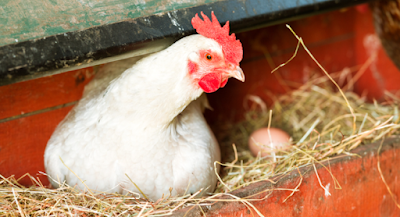Vitamin requirement of Laying Hen
The overall goal of the layer industry is to achieve the best performance, feed utilization and health of birds. All nutrients including proteins, fats, carbohydrates, vitamins, minerals and water are essential for these vital functions, but vitamins have an additional dimension. They are required in adequate levels to enable the animal to efficiently utilize all other nutrients in the feed. Therefore, optimum nutrition occurs only when the bird is offered the correct mix of macro- and micronutrients in the feed and is able to efficiently utilize those nutrients for its growth, health, reproduction and survival.
Vitamins are active substances, essential for life of man and animals. They belong to the micronutrients and are required for normal metabolism in animals. Vitamins are essential for optimum health as well as normal physiological functions such as growth, development, maintenance and reproduction. As most vitamins cannot be synthesized by poultry in sufficient amounts to meet physiological demands, they must be obtained from the diet. Vitamins are present in many feedstuffs in minute amounts and can be absorbed from the diet during the digestive process. If absent from the diet or improperly absorbed or utilized, vitamins are a cause of specific deficiency diseases or syndromes.
 |
| Vitamin requirement of Laying Hen |
Classically, vitamins have been divided into two groups based on their solubility in lipids or in water. The fat-soluble group includes the vitamins A, D, E and K, while vitamins of the B complex (B1, B2, B6, B12, niacin, pantothenic acid, folic acid and biotin) and vitamin C are classified as water-soluble. Fat-soluble vitamins are found in feedstuffs in association with lipids. The fat-soluble vitamins are absorbed along with dietary fats, apparently by mechanisms similar to those involved in fat absorption. Water-soluble vitamins are not associated with fats, and alterations in fat absorption do not affect their absorption, which usually occurs via simple diffusion. Fat-soluble vitamins may be stored in the animal body. In contrast, water-soluble vitamins are not stored, and excesses are rapidly excreted.
It is now well recognized by the feed industry that the minimum dietary vitamin levels required to prevent clinical deficiencies may not support optimum health, performance and welfare of poultry. The reasons for this are manifold: The productivity of poultry farming continues to grow through genetic improvement of the breeds and through modifications in nutrition, management and husbandry, which considerably increase the demand for vitamins. Furthermore, intensive poultry production may generate a certain level of metabolic, social, environmental and disease stresses, causing sub-optimal performance and higher susceptibility to vitamin deficiencies. The contamination of the feed with mycotoxins and vitamin antagonists can limit or even block the action of certain vitamins. Any of these factors, ranging from the animals’ genetic background and health status to management programmes and the composition of the diet, can separately or collectively affect the need for each vitamin. As intake and utilization of vitamins from natural sources is unpredictable owing to differing contents of vitamins in the feedstuffs (dependent on growing climate and harvesting time of crops, processing and storage conditions of feed ingredients) and variable vitamin bioavailability, it is safer to cover the total vitamin requirement of poultry through dietary supplementation.
More than ever before, the layer industry is currently facing the challenge to improve productivity in order to remain competitive in today’s cost-driven environment. Fortunately, high-performing layer breeds with improved performance pattern, optimized feed conversion capabilities and favorable health characteristics are available. But in order to allow the birds to perform up to their genetic potential, their nutrition and especially their vitamin supply needs to be optimized. In particular, B vitamins are required for efficient nutrient utilization, and together with vitamin A are important to support the hens’ metabolic activity for maintenance and high laying performance. Furthermore, both vitamins C and E improve the birds’ resistance to stress, and help sustain health and longevity. Specific benefits related to superior egg quality can be achieved if supra-nutritional levels of vitamin E are added to the feed of laying hens. And finally, considerable vitamin D activity is required in order to support an adequate skeletal development and to avoid leg problems of various origins.
 |
| Vitamin requirement of Laying Hen |
1 Do not exceed 3000 IU D3/kg feed.
2 Under heat stress conditions: 200 mg/kg
3 Local legal limits of total dietary vitamin D activity need to be observed
